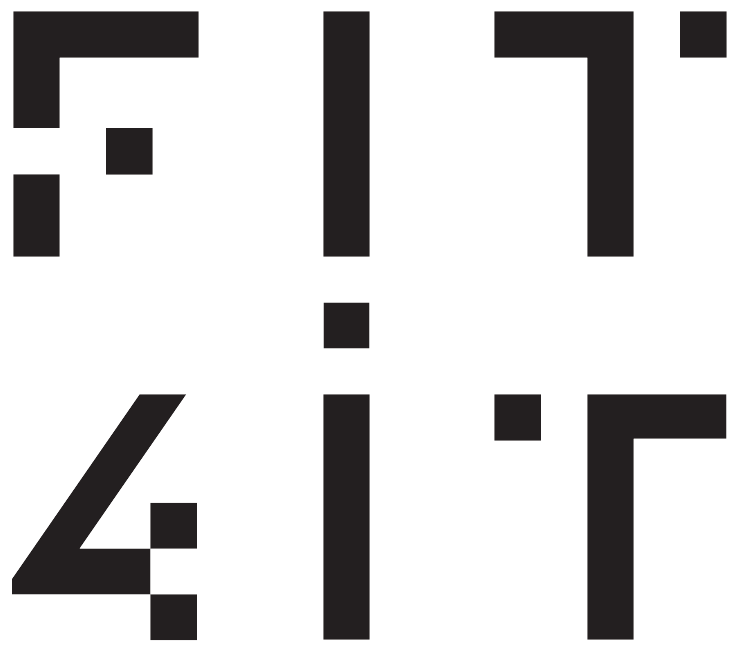We often talk about fitness in terms of weights lifted, calories burned, and goals smashed. But what about the weight we carry that no one sees? The mental load. The emotional fatigue. The quiet burnout that sneaks in, not with a bang, but with a slow fade.
It’s called emotional fatigue, and it can profoundly impact your physical health, motivation, and performance, even when you’re doing “everything right.”
At FIT4IT, we work with clients who’ve trained hard, eaten clean, and still feel stuck. More often than not, it’s not a lack of discipline; it’s emotional overload.
So let’s talk about the invisible toll stress takes on your workouts, your energy, and your progress, and what you can do about it.

Emotional fatigue is a deep sense of mental and emotional exhaustion that builds over time, often without us realizing it.
What Exactly Is Emotional Fatigue?
Emotional fatigue is a state of mental exhaustion caused by prolonged stress, overwhelm, and suppressed emotion. It’s what happens when your nervous system is constantly in “survival mode,” juggling work pressure, relationship strain, financial worries, or grief, often without time to process or recover.
The Mind-Body Link: When Mental Health Impacts Physical Fitness
The connection between mental health and fitness is real, and it’s more powerful than many people realize. When your brain is under chronic stress, it triggers a cascade of physiological responses. Your body releases cortisol and adrenaline, both designed for short bursts of action. But in today’s world, stress isn’t short-lived. It’s chronic. And it lingers.
Over time, that affects your:
Motivation
You find it harder to start workouts or even show up. Emotional fatigue makes discipline feel like a mountain, not a muscle.
Stamina and Strength
Cortisol can impair muscle recovery and reduce endurance. Even if you’re training the same, your output and performance suffer.
Sleep and Recovery
Chronic stress often hijacks your sleep cycle, leading to poor recovery, fatigue, and increased risk of injury.
Cravings and Appetite
Stress alters hunger hormones like ghrelin and leptin, making you crave comfort food and disrupting your nutrition game.
Hormonal Imbalances
Long-term emotional strain can disrupt the balance of key hormones that regulate metabolism, inflammation, and energy levels. So if you’ve been wondering why you’re dragging yourself through workouts, or why results seem slow, it might not be your program. It might be your nervous system.
Signs You’re Carrying Invisible Weight
Recognizing emotional fatigue is the first step to addressing it. Here are some common signs:
- You feel “meh” even after a great workout.
- You hit the gym out of obligation, not excitement.
- You’re mentally checked out, even in the middle of a session.
- Your sleep is restless, and mornings feel heavy.
- You’re snapping at people over small things.
- You find yourself skipping workouts more often.
Sound familiar? You’re not lazy. You’re human. And your brain is waving a flag for help.
How to Train When You’re Emotionally Exhausted
The good news? You don’t have to “push through” or quit altogether. You just need to adjust your approach. You just have to honor your mental health the same way you would an injury or physical strain. That’s where personal training can make a difference, not just by adjusting your workouts, but by helping you navigate the mental load, too.
1. Scale Intensity, Not Consistency
Instead of skipping your session entirely, lower the intensity. Swap HIIT for a light walk. Replace heavy lifting with bodyweight mobility work. Keep the habit alive, just reduce the demand.
2. Sleep Like It’s Your Job
Sleep itself is a medicine. Prioritize 7–9 hours of quality sleep. Recovery starts in the mind, not just the muscles.
3. Fuel With Purpose
Under stress, we tend to reach for sugar and processed foods. Shift focus to meals that stabilize blood sugar. Think protein, fiber, healthy fats. Your brain will thank you.
4. Breathe. Literally.
Try box breathing (inhale for 4, hold for 4, exhale for 4, hold for 4) for 2–3 minutes before or after your session. It helps shift your nervous system out of fight-or-flight and into rest-and-digest.
5. Speak It Out or Write It Down
Don’t underestimate the power of talking to someone or even journaling. Getting thoughts out of your head and onto paper (or into conversation) reduces emotional load. A life coach can also help you untangle the emotional knots that drain your energy, giving you clarity and direction beyond the gym.
6. Train for Mental Strength Too
Mindfulness, gratitude practice, or simply unplugging from digital noise can dramatically reduce emotional stress. Your workouts shouldn’t be the only time you care for yourself.
Permit Yourself To Be Human
Fitness culture often praises grind, hustle, and discipline. But real strength is knowing when to slow down. Listening to your body. Letting rest be productive.

Unlike physical tiredness, emotional fatigue doesn’t go away with a nap; it needs rest, reflection, and recovery.
At FIT4IT, we believe in sustainable fitness. That means making room for your mental well-being in your fitness journey. Because you’re not a machine, and your health is more than a number on the scale or a time on the stopwatch.
You’re Not Weak, You’re Carrying Too Much
If your workouts feel heavier lately, maybe it’s not the dumbbells. Maybe it’s the silent weight of emotional fatigue, and it’s time to put some of it down. Whether you’re a parent running on empty, a professional juggling deadlines, or someone quietly carrying grief or burnout, know this: you’re not alone. And fitness doesn’t have to be another pressure on your back.
It can be your release. Your reset. Your reminder that you are more than what you’re carrying.
Have you felt emotionally drained but tried to keep up with workouts anyway? How did you cope, or did something eventually give?
Research & Further Reading
- The Effects of Mental Fatigue on Physical Performance. Systematic review showing mental fatigue impairs endurance and increases perceived exertion. https://pubmed.ncbi.nlm.nih.gov/28044281/
- The Effects of Stress on Physical Activity and Exercise. Review of how psychological stress negatively impacts physical activity levels and consistency. https://www.ncbi.nlm.nih.gov/pmc/articles/PMC3894304/
- Role of Physical Activity on Mental Health and Well-Being: A Review. A detailed review of the impact of regular physical activity on depression, anxiety, and well-being. https://www.ncbi.nlm.nih.gov/pmc/articles/PMC9902068/
- Effects of Mental Fatigue on Exercise Intentions and Behavior. A study showed how mental fatigue can reduce willingness and motivation to exercise. https://pubmed.ncbi.nlm.nih.gov/29985969/
- Regular Exercise is Associated with Emotional Resilience to Acute Stress. Research linking consistent exercise with better emotional resilience to stressors. https://www.ncbi.nlm.nih.gov/pmc/articles/PMC4013452/
- The Link Between Exercise and Mental Health – UCLA Health. Breakdown of how regular exercise reduces poor mental health days. https://www.uclahealth.org/news/article/the-link-between-exercise-and-mental-health
- Exercise and Mental Health – Better Health Channel (Victoria, Australia) Government-backed health resource explaining how exercise benefits mental health. https://www.betterhealth.vic.gov.au/health/healthyliving/exercise-and-mental-health
- Mental Fatigue Can Impair Physical Performance – Neuroscience News. Article explaining how mentally demanding tasks make physical performance more difficult. https://neurosciencenews.com/mental-fatigue-exercise-22780/
- Exercise and Stress: Get Moving to Manage Stress – Mayo Clinic. How physical activity helps manage stress and improve emotional well-being. https://www.mayoclinic.org/healthy-lifestyle/stress-management/in-depth/exercise-and-stress/art-20044469
- The Effects of Mental Fatigue on Physical Performance: A Systematic Review – Springer. Scientific review showing that mental fatigue impairs physical performance. https://link.springer.com/article/10.1007/s40279-016-0672-0
Was this helpful?
Good job! Please give your positive feedback
How could we improve this post? Please Help us.







No Comments